Tehran Mayor Zakani Enters Presidential Race Amid Criticisms
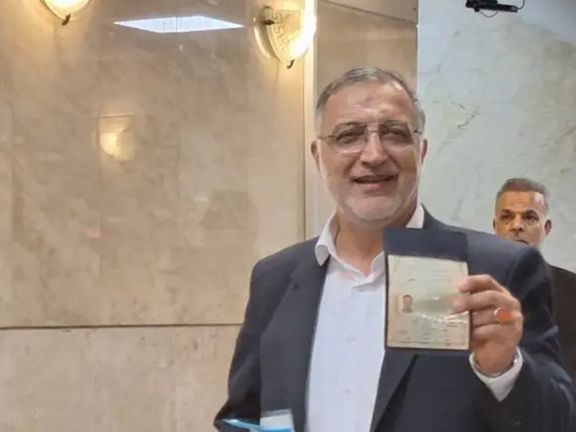
Alireza Zakani, the current Mayor of Tehran and a hardliner politician, has formally registered to run in Iran's presidential election scheduled for June 28.

Alireza Zakani, the current Mayor of Tehran and a hardliner politician, has formally registered to run in Iran's presidential election scheduled for June 28.
Known for his conservative stance and nicknamed the "revolutionary tank," Zakani is returning to the presidential fray after withdrawing in 2021 to support Ebrahim Raisi, who died in a helicopter crash on May 19.
Zakani's political career has been marred by controversy for his aggressive tactics, particularly against reformists. Despite his bold rhetoric, he has faced significant criticism, even from state media, which questions his suitability for higher office.
His tenure as mayor has not been without its problems, including disputes over urban policies like mosque constructions in parks and the enforcement of the hijab on public transport, which have sparked internal conflicts within the conservative camp and the city council.
Financial and familial scandals have also dogged Zakani. His administration's decision to provide financial deposits to municipal managers for housing needs led to a backlash from several city council members. More personal allegations have surfaced, including nepotism involving his son-in-law and questionable financial dealings by his daughter and her husband with the Islamic Development Organization.
Zakani’s political past includes a stint as the chair of the JCPOA - nuclear deal - commission in the parliament in 2010s, where he transitioned from presenting an impartial stance to becoming a vocal opponent of the agreement.
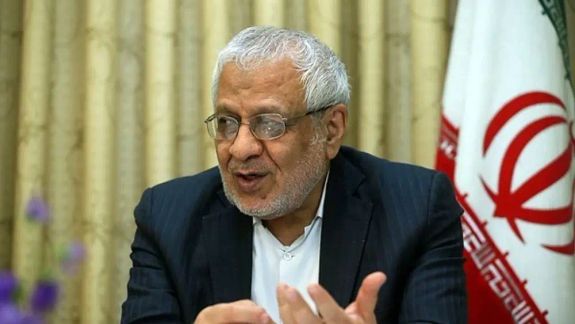
Asadollah Badamchian, the secretary-general of the Islamic Coalition Party and an insider, has openly stated the need for a presidential candidate who can reassure Supreme Leader Ayatollah Khamenei about the future.
Speaking about the upcoming elections, Badamchian expressed, "The next president must be someone who can put Khamenei at ease."
The sudden death of former President Ebrahim Raisi in a helicopter crash on May 19 has triggered a snap election in Iran, scheduled for June 28.
Badamchian, a hardline Islamist politician with a history deeply embedded in Iran’s political fabric, emphasized that the ideal candidate must adeptly represent the revolutionary values and speak fluently on issues concerning the ruling regime and the nation.
"We need someone who, wherever he goes, knows how to speak on behalf of the revolution, the regime, and the nation," he added.
Having served two terms in parliament, his comments reflect the Islamic Republic's ongoing strategy to ensure that leadership remains aligned with Khamenei’s vision, amid growing domestic and international challenges.
So far, 12 individuals have registered for the presidential race, including former Speaker Ali Larijani and ultra-conservative Saeed Jalili. Their eligibility to officially compete in the elections will be determined after the approval of the Guardian Council, an unelected body made up of appointees loyal to Supreme Leader Ali Khamenei
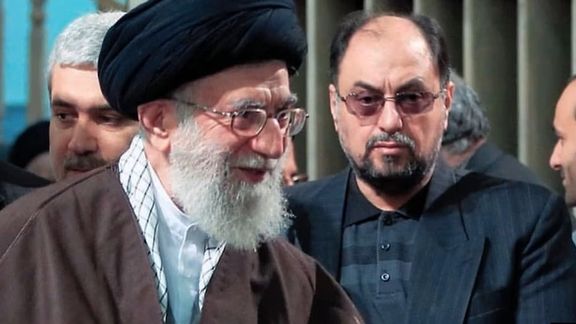
Vahid Haghanian, a prominent and mysterious figure within the Office of the Supreme Leader of Iran, has registered as a candidate for the upcoming presidential election.
Haghanian, known for his elusive background and secretive role within the inner circles of the Iranian regime, has historically been a key player in facilitating the Supreme Leader's directives across Iran's military, cultural, economic, and political spheres.
After formally registering his candidacy Haghanian, told reporters that "Based on a personal decision, I have made up my mind to register as a candidate for the presidential election."
He expressed his intent to transition from "the deepest layer of the system's brain to the first and most visible layer," moving from behind-the-scenes influencer to front-line electoral politics and public engagement.
During his address, he discussed his experience within the government, emphasizing his commitment to understanding and addressing people's issues.
"Over these 45 years, due to my duties, by traveling to all provinces, preparing ongoing reports, and presenting them for decision-making, being directly involved in the [Iran-Iraq] war and other areas, I have been able to establish sufficient connections with all segments of society," he explained.
“I have never been and will never be a member or adherent to the principles of any factions, but I have and will continue to cooperate and engage with all of them."

Haghanian's is speech was interrupted several times due to unexpected power cuts. He responded to the embarrassing situation by saying, "I hope it wasn't intentional."
Despite his efforts to maintain a low profile, Haghanian came under international scrutiny in 2019 when he, along with eight other officials from the Supreme Leader's office, was sanctioned by the US Treasury.
Described as "the Supreme Leader’s right hand" and a former military commander, his close association with Khamenei during public engagements further cemented his status.
However, recent years have seen a noticeable reduction in Haghanian's public appearances alongside Supreme Leader Khamenei, sparking speculation about his current standing within the system.
Media in Tehran characterize his role in different ways, including giving him the title of "deputy for special projects," but there is no official indication of his current position. Many figures close to Khamenei are expected to enter the race, including current acting president Mohammad Mokhber. So far, Saeed Jalili, a staunch hardliner and Khamenei loyalist, has registered as a candidate. Former Parliament Speaker Ali Larijani, who is considered a political heavyweight among former officials and long-time Khamenei loyalist has also announced his candidacy, although he has been pushed aside from the center of power since 2020.
Meanwhile, Alireza Zakani, the hardliner Mayor of Tehran, officially entered the race for Iran's presidential election on Saturday. With his conservative views, Zakani reenters the political scene after stepping aside in 2021 to endorse Ebrahim Raisi.
Masoud Pezeshkian, a known reformist lawmaker and former First Deputy Speaker of the Iranian Parliament also registered. Pezeshkian, brings a limited measure of diversity to the race, emphasizing reforms and openness. His previous tenure as Minister of Health under President Mohammad Khatami highlights his reformist closer ties to the 'reformists.'.
In a related development, conservative politician Parviz Fattah has confirmed he will not be entering the race. Fattah, a former IRGC officer known for his leadership of the economic conglomerate Execution of Imam Khomeini's Order, was widely expected to declare his candidacy for the June 28 snap elections. His withdrawal has left room for new conservative figures to emerge, potentially altering the dynamics of the electoral contest.
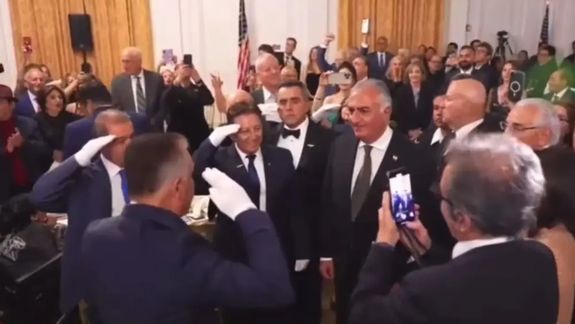
The centennial celebration of the Imperial Iranian Air Force took place in Yorba Linda, California, with the presence of exiled Prince Reza Pahlavi.
The event, organized by the Jewish communities of Los Angeles and the Persian American Civic Action Network, PACAN, was held at the Nixon Library, highlighting the historical significance and achievements of the air force established back in 1925.
Initially, Iran's efforts to acquire aircraft from the United States in the 1920s were unsuccessful due to Washington's refusal based on a World War I treaty. Consequently, the IIAF's early fleet was composed entirely of European aircraft, predominantly from British and German manufacturers. Following World War II, the IIAF began a gradual process of rebuilding its aircraft fleet, primarily sourcing its equipment from the United States and Great Britain.
By mid-1970s, Iran's air force had turned into one of the most modern and well-equipped air forces in the world, featuring advanced American warplanes, such as the F-14.
During the ceremony, Prince Reza Pahlavi paid tribute to the former officers of the Iranian Air Force, acknowledging their role in maintaining Iran's sovereignty during the Cold War. He praised the air force as one of the most advanced and proficiently trained in the world during its time, equipped with an array of fighter jets.
Pahlavi remarked on the air force's dual role in defense and diplomacy, stating, "At the height of the Cold War, this force not only protected the skies and land of Iran from any foreign aggression through deterrence but also played a role in creating peace and stability in some regional and international conflicts."
The centenary event served as a contrast to current practices in Iran, underlining the historical significance of a once-internationally respected military force. The gathering reflected a longing for the values and visions of an era before the Islamic Republic.
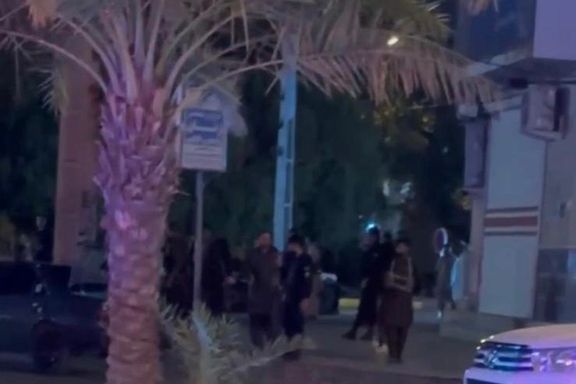
Iranian police in Iranshahr, in the restless Sistan-Baluchestan province, fatally shot two unarmed Baluch citizens without prior warning.
The incident took place Friday evening, though the reasons behind the shooting remain unclear.
While the identities of the victims have not been released, the security-affiliated Tasnim news agency provided a conflicting account. It cited Doustali Jalilian, the police commander of Sistan-Baluchestan, who claimed the individuals were armed and had attacked a police patrol unit while shouting religious slogans.
However, Haalvash that covers developments in the province contested the claim, releasing two videos showing the two men walking peacefully on a sidewalk before being abruptly fired upon from multiple directions, leading to their immediate deaths.
Following the incident, security forces sealed off the scene and removed the bodies, raising concerns about the transparency of the operation. This episode is not an isolated occurrence in the region. Baluch activists report that such incidents of unprovoked shooting by police are common.
A similar case occurred on May 13 in downtown Saravan, where military and security personnel shot at a family car from several angles without warning, killing a 14-year-old and severely injuring other family members. The local police commander later branded the victims as criminals with a violent history, a claim often disputed by local communities and activists.
The human rights organization HRANA noted that in 2023, Iran saw 402 victims of shootings by security forces, resulting in 120 deaths. The Baluch minority, residing in one of the poorest regions of Iran, has long faced severe persecution, including executions and allegations of unfair trials, particularly concerning drug-related charges.
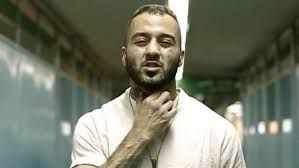
A bipartisan group of US lawmakers introduced a bill on Friday that would impose targeted sanctions on Iranian officials and judges who arrest, jail and impose death sentences on dissidents.
Targeting Oppressive Officers to Mitigate Abuse in the Judiciary Act would impose sanctions “on the judges, prosecutors and investigators of the Islamic Republic’s Islamic Revolutionary Courts, which are involved in sham trials, torture, and inhumane treatment and sentencing of Iranian protesters and political dissidents.”
The bill is also known as the TOOMAJ Act, aptly corresponding with the first name of a dissident rapper, Toomaj Salehi, who has been incarcerated in Iran and sentenced to death. The young artist, known to millions of Iranians as Toomaj, published protest songs on social media during anti-government protests in 2022, known as the Woman, Life, Freedom movement.
Toomaj has become a symbol of arbitrary arrests, death sentences and hangings of dissidents in Iran. Trials are usually held behind closed doors, without an adequate defense team and due process. Charges are vague statements based on arbitrary concepts of Iran’s Islamic laws, such as dishonoring sanctities, or insulting the Supreme Leader. A protester demanding freedom for women or prisoners can be charged with endangering national security.
“Toomaj Salehi has used his platform to give a voice to the voiceless and bravely speak out against the Iran regime’s torture, abuse, and crackdown against the free will of the Iranian people," Rep. Young Kim, R-Calif., one of the bill's lead sponsors, said in a statement to The Associated Press. “Unfortunately, he is just the latest victim of the regime’s cruelty.”
She added that the bill will allow the US “to stand side by side with Toomaj and other peaceful protesters demanding basic human rights and take targeted action against the Iran regime.”
TOOMAJ Act was introduced by Representatives Young Kim (R-CA), Adam Schiff (D-CA), Mike Lawler (R-NY), and David Trone (D-MD), marks a vital progression in the fight against human rights abuses in Iran. An Iranian American advocacy group in Washington said that the bill will also penalize “hostage taking of Americans and legal residents, a nefarious tool long used by the Islamic Republic.”
US lawmakers have introduced an array of bills since September 2022, when Mahsa Amini was arrested for improper hijab in Tehran and received fatal head injuries in police custody. Her death three days later sparked the largest anti-government protests in 45 years in Iran.
The most famous bill targeting human rights abuses in Iran was the MAHSA Act that passed the US Congress in April. The Mahsa Amini Human Rights and Security Accountability Act, or simply the MAHSA Act, will see the imposition of sanctions on Iran’s supreme leader’s office, its appointees and anyone affiliated with the office and its work. However, it is not clear to what extent the Biden administration will pursue the bill’s implementation.